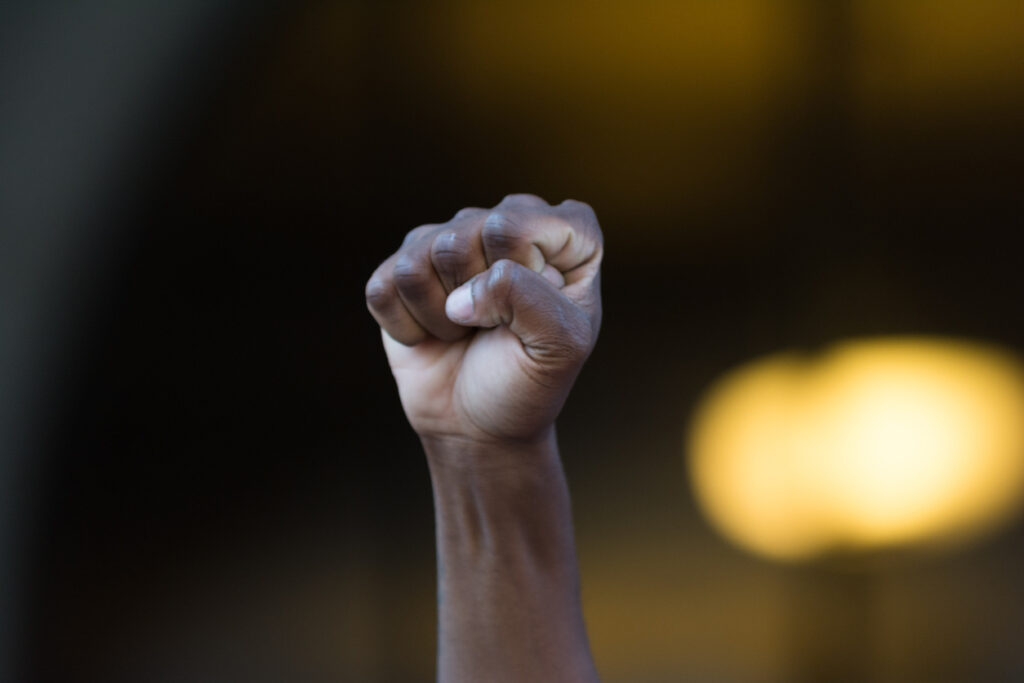So much has happened since the Black Lives Matter protests last summer and many things have been written on the topic of racism but what we’re really just getting started on is understanding the mental health issues caused by ‘masking’ in the workplace, which happens because of racism and all its forms.
The mental health issues caused by racism, micro aggressions, exclusion and having to wear a workplace ‘mask’ don’t only negatively affect the individual, but the bottom line as well.
In 2020, perhaps for the first time for some, many people started to realise that racism – overt or covert, complicity in the form of silence, bias when it comes to sticking with the familiar in choices of friendships, purchases, recruitment, promotion, networking, referrals, medical treatment and even media – affects our collective wellbeing and happiness.
What does this mean in the long-term? That’s what we’ll explore here.
The importance of ‘voice’
Wellbeing is the state of being comfortable, healthy or happy. Happiness is the combination of purpose, meaning, pleasure and positivity.
Within that framework lie our basic needs (physical, emotional and mental, autonomy, mastery, belonging and inclusion). They are all interconnected. Without the fulfilment of one, happiness at work is compromised. An invisible but essential thread that runs through each component is ‘voice’.
Voice is a feeling of safety, in speaking up and being authentic without resorting to masks. It is the lack of a sense of futility in speaking up and being heard. Voice is vital in creating an inclusive organisational culture and ensuring the wellbeing and happiness of employees.
Why? Well, because not having a voice, not feeling safe enough to speak up or feeling a sense of futility in trying to speak up leads to masking and code-switching as a result of a lack of trust. Masking is a shield that protects the wearer from superficial ‘hurt’.
In an organisation where there are acts of racism, especially covert racism, the group that is racially discriminated against resorts to code-switching and masking as a survival technique. To the onlooker, they may seem to be doing great, but this leads to various mental health issues such as mental exhaustion, stress, anxiety, post-traumatic stress disorder and, in some cases, personality disorders.
Inevitably, most experience burnout, leading to disengagement, reduced productivity and stepping away from the workforce.
The stress of ‘masking’
It is exhausting having your guard up all the time, afraid to make a misstep that could negatively put you in the spotlight. For instance, many Africans are concerned about taking their food to work because their colleagues will complain and HR will come after them for upsetting the duty of care, with the smell of their ‘ethnic food’, so they learn to pretend to enjoy sandwiches and tea until their brains are convinced.
This also applies to how people dress. From agbada to turbans to saris, to iro and buba (wrapper and blouse) to ankara (African prints) to burkas – what would your reaction be to seeing your colleagues come to work dressed in one of these? Would your kneejerk reaction be to say they are dressed ‘unprofessionally’?
What about their hair, their speech pattern, or perhaps their hand and facial gestures? Are they interpreted as too showy or rude? Are the adjustments being made one-sided, all from the colleagues from different minority racial backgrounds?
Despite the fervent conversations on diversity, equality and inclusion during the pandemic, Covid-19 has birthed a different kind of micro-aggression and exclusion shielded under the auspice of ‘health concerns’. Since ethnic minorities have been identified as being at higher risk of severe illness from Covid-19, it has resulted in the unconscious bias that ethnic minorities are carriers of the virus, and they are treated with veiled disdain as a result.
It’s a fine line, so how does one find the balance?
Removing the mask
The mental health issues caused by racism, micro aggressions, exclusion and having to wear a workplace ‘mask’ don’t only negatively affect the individual, but the bottom line as well, due to the costs of absenteeism, recruitment and training.
Indeed, figures from the ONS show that an estimated 141.4 million working days were lost because of sickness or injury in the UK in just one year, the equivalent to 4.4 days per worker – and that was in 2018. Imagine how much higher that might be now.
Creating a people first, inclusive culture that encourages everyone to bring their whole selves to work is more than a trendy catchphrase or slogan. It takes commitment, dedication, constant education, organisational checks and an emphasis on giving voice to everyone.
To look out for the holistic wellbeing of racially diverse colleagues, the silent plague of masking has to be addressed. Here are some ways to remove the need for masking:

- Diversity, equality and inclusion (DEI) training backed by zero tolerance to racism
While subtle acts of exclusion are often harder to spot, it is essential that DEI training is done regularly to empower everyone with knowledge and information. This education makes it easier to implement a 360-degree feedback system enabling colleagues and management to see where the loopholes are. The 360-degree feedback doesn’t just empower the racial minority – it also empowers allies to use their voices.
- Understand your people
Take advantage of a personality testing system like DISC, which is the universal language of behaviour. Knowledge of DISC empowers you and your team to be more self aware, more understanding of others, better communicators, agile at resolving conflict, and promotes better onboarding. Research has shown that behavioural characteristics can be grouped in four major groups – dominant, influence, steadfast and compliant. All people share these four styles in varying degrees of intensity.
- Know your colleagues
It is clear that work is easier when you feel you know your colleagues, so how about proposing a learning experience where colleagues discover each other’s cultures? This could be done in the form of an immersive experience that leaves them feeling like they’ve made a trip to each other’s homes. If it’s done often, this will weave a bond of understanding and appreciation between team members.
- Host diversity themed days
On these days, you can choose to encourage colleagues to come to work in traditional outfits and to share a fact or story about the outfit. (If you’re working remotely then video calls can facilitate this shared experience). This activity should encourage everyone to embrace, express and celebrate the richness of various cultures. Does this raise the question of cultural appropriation? No – because other cultures are not being appropriated, but appreciated with due acknowledgment given. This creates an understanding of roots and connectedness between the brand and the larger community.
We all have a responsibility to eradicate racism in all its forms at work, on the street and at home. Remember, we do not know what we do not know – but we can learn.
Interested in this topic? Read Employee wellbeing: how does racism affect mental health?
[cm_form form_id=’cm_65a14c3f5da64′]






